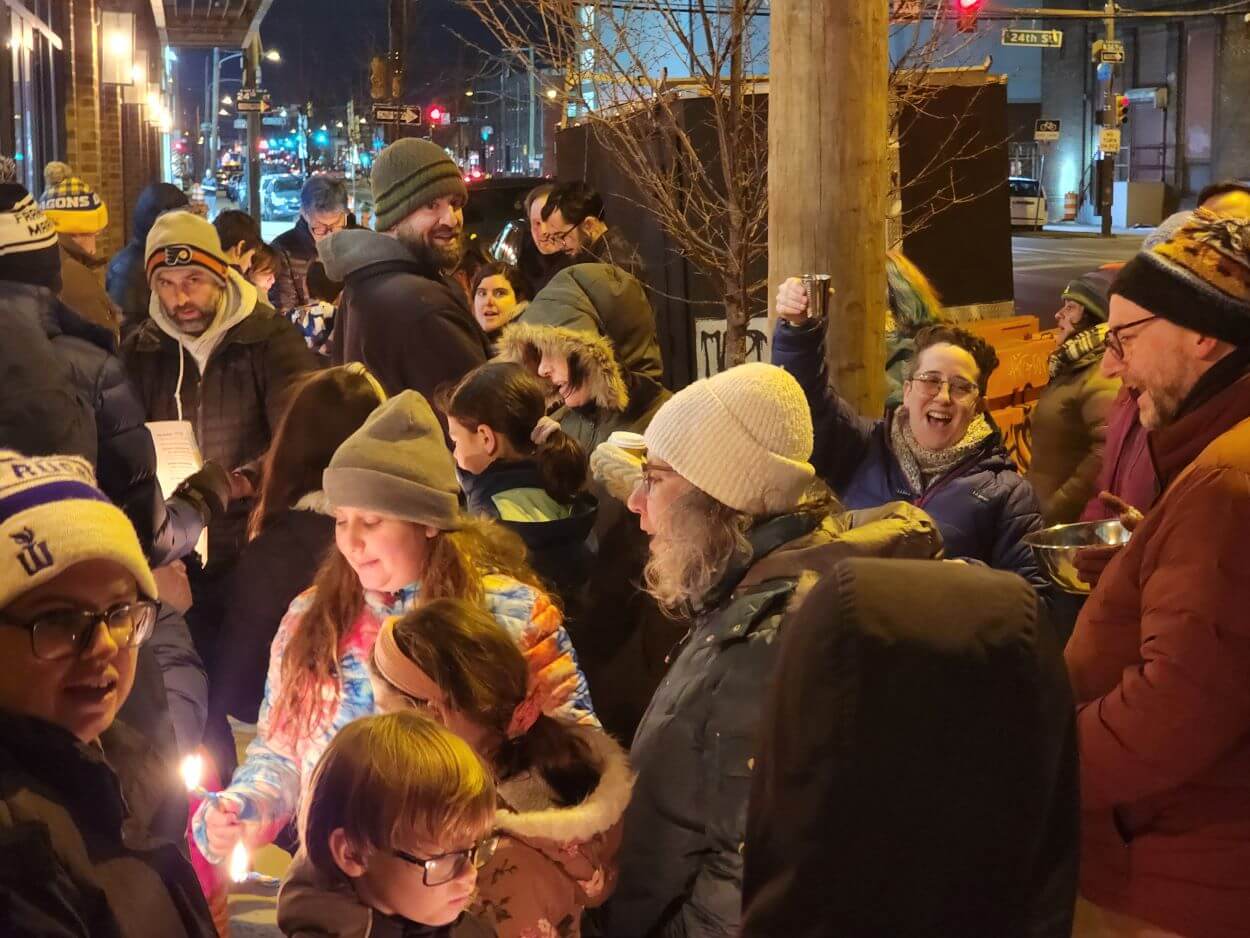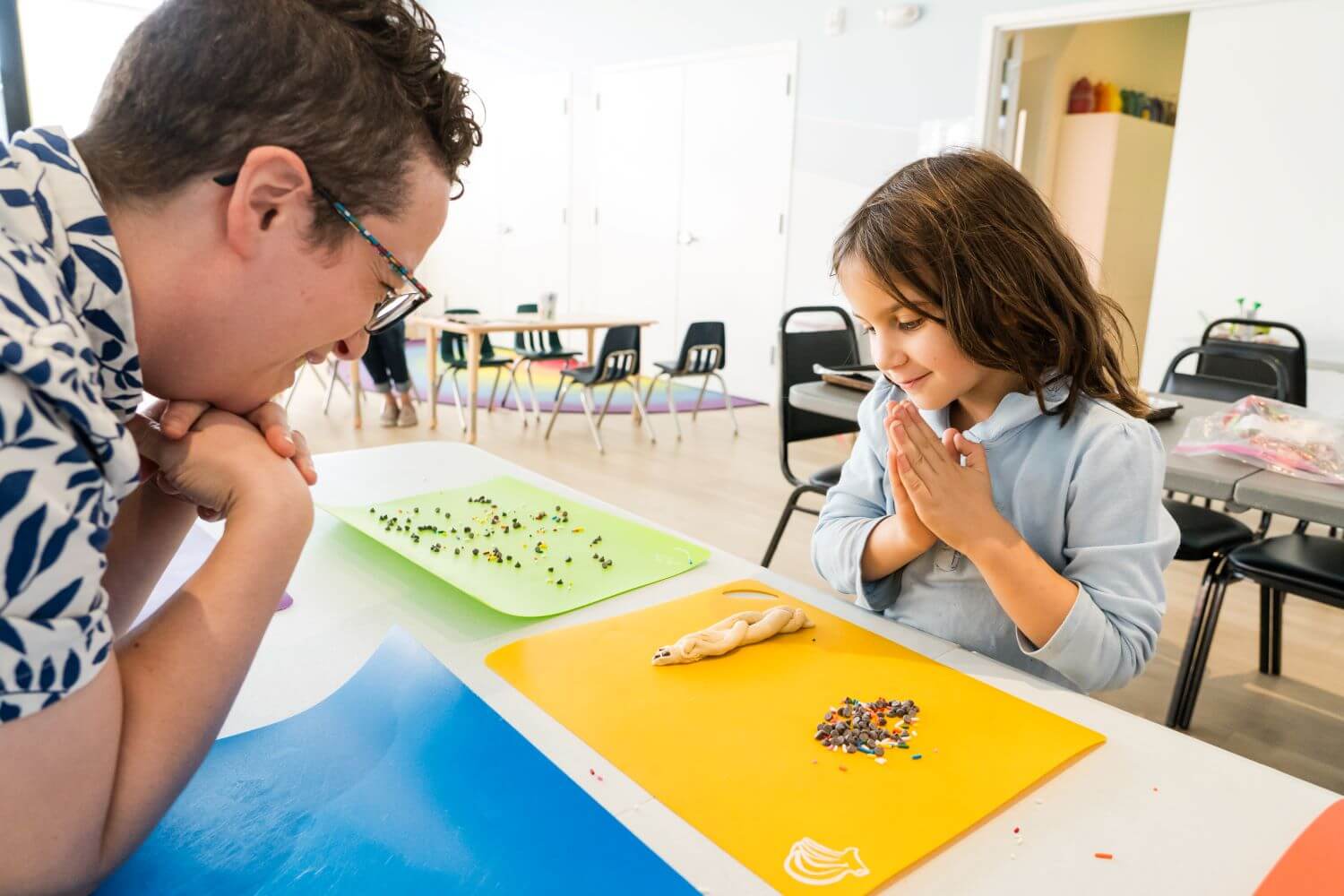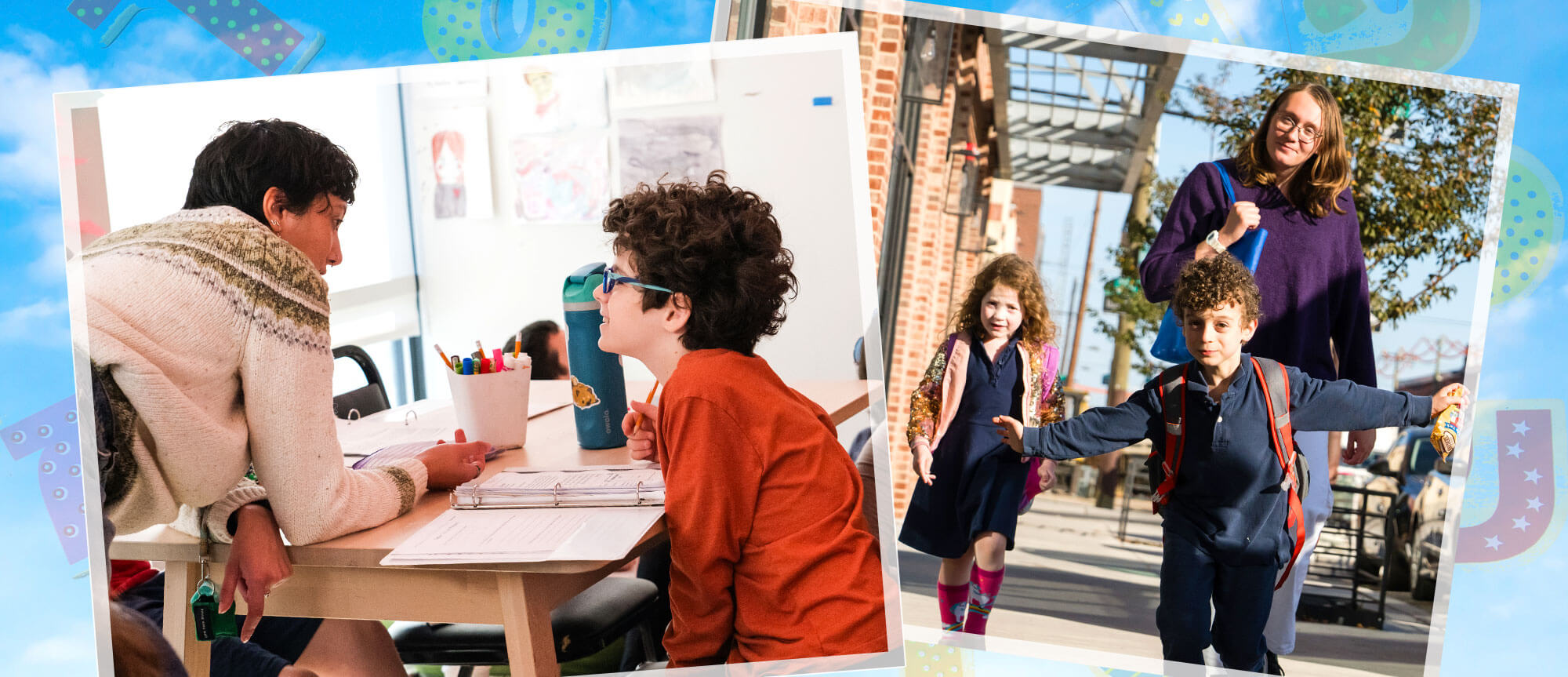Makom’s Uniquely Developed Pedagogy
What is Jewish Placemaking:
Jewish Placemaking transforms Jewish Education by exploring Jewish wisdom as an invitation for parents and children to create the physical and relational spaces we need. We do that by creating community and by engaging with and challenging collected Jewish wisdom. Jewish Placemaking is based on the urban planning idea of placemaking: people can transform a place into somewhere they love being.
What Does This Mean for Educators?
Educators know that being fully invested in the ways our learners and their families become their fullest, most authentic selves is the key to Jewish connection and engagement. By relying on the pillars of Jewish Placemaking, it creates a blueprint for creating these opportunities in each educational encounter. When educators know how to expertly balance each of these four pillars, what unfolds is Jewish Placemaking. Every learner encounters Jewish wisdom authentically from the place of who they are today to support who they are becoming before our very eyes.

Pillars of Jewish Placemaking:
![]()
Embracing self-efficacy: Self-efficacy is the skill of being able to look at a task, assess the skills needed to take on that project, and reflect realistically where we have the skills we need, where we can grow, and where we need support. When we teach for self-efficacy, learners (of any age) can look back and tell us why what they learned mattered, how their thinking changed, and how they understand their own feelings differently. You can read examples of self-efficacy here.
![]()
Cultivating Empathy: Even very young children are deeply empathetic. Cultivating reflective process and knowing what we liked about how something went and didn’t requires a real investment in the practice of empathy. As children, parents, and educators learn to slow down enough to engage in self-reflection, they can shift away from getting through the lesson plan, checking things off the to-do list, and getting to the next scheduled activity to be present with each other we move through that day’s increment of becoming. When Jewish Education stops short of empathy, we are not setting our learners up to become who they deserve to be with our support. You can read examples of cultivating empathy here.
![]()
Planning for a Range of Emotions: When learners first encounter this slower approach to learning where they are asked to stop, reflect, adjust, and proceed with a degree of autonomy, we see a range of emotions and reactions. For some children, this is total relief. For others, it’s surprising. We also know that life throws a great deal of happiness, strife, and everything in between at people relentlessly, all day, every day. Jewish Placemaking asks our educators to plan for that reality. You can read examples of planning for a range of emotions here.
![]()
Grounding in the fullness of Jewish wisdom: Torah, in the broadest sense as all of the intergenerational wisdom collected by the Jewish people in our whole mythological history, is the greatest gift of all time. Does what Jewish wisdom offers us always resonate as perfectly relevant and something our sensibilities don’t take issue with? Absolutely not! When Torah is ableist or otherwise doesn’t sit well with our communal values in 2024, it is still ours to call out, problematize, empathize with, and sit with our own reactions to. Being grounded in Jewish wisdom does not mean accepting every word of Jewish wisdom as perfect. It does, however, mean admitting that even the blemishes, the painful parts of our collected tradition have a great deal to teach us and absolutely have bearing on our lives today and how we are becoming. You can read examples of grounding all of this in the fullness of Jewish wisdom here.


